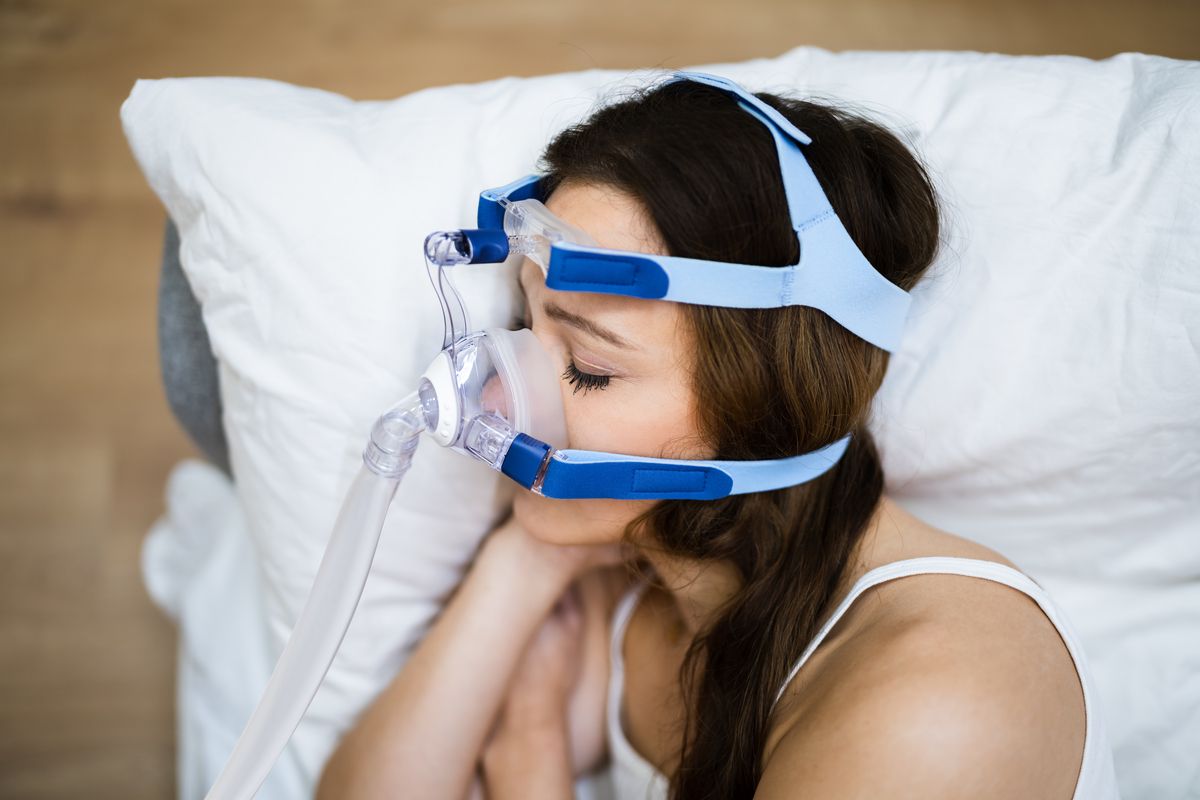The COVID-19 pandemic has focused attention on a potential shortage of ventilators to keep the most severely affected patients alive when their lungs are overwhelmed by the disease. ResMed (RMD 0.31%) makes life-support ventilators and was one of six companies named when the Trump administration invoked the Defense Production Act to facilitate the production of ventilators. ResMed says its goal is to double or triple its output of the machines and increase ventilator mask production tenfold.
As a pioneer in respiratory therapy, ResMed had already attracted plenty of investor attention before the pandemic hit, with shares rising 38% last year. Yet despite the potential for additional ventilator sales, ResMed stock is up only 4% since the start of the year. Is ResMed a buy now?
Its core business is selling continuous positive airway pressure (CPAP) machines to treat obstructive sleep apnea. The condition, which causes "sleep suffocation" in patients who can't sleep and breathe at the same time, is an underdiagnosed and serious health problem that is estimated to affect over 900 million people worldwide.
ResMed sells the CPAP machines and the masks that need periodic replacement and has expanded into devices for other respiratory therapy needs, including portable oxygen for chronic obstructive pulmonary disease (COPD) and the life-support ventilators that are in the spotlight now. The company also has a growing software-as-a-service (SaaS) business for out-of-hospital care providers.

Image source: Getty Images.
Years of growth ahead
The company's offerings are producing strong revenue growth and expanding margins. In the first half of fiscal 2020, which ended on Dec. 31, revenue increased 14% to $1.42 billion, and earnings per share rose 21% to $1.93. Adjusted for some one-time items, EPS was up 18% to $2.14. Gross margin in the first half increased from 58.7% to 59.6%
ResMed's device sales grew 7%, but most of the revenue increase came from 16% growth for masks and other accessories. The company has introduced new smaller masks that are more comfortable to wear during sleep, helping to overcome some of the objections to CPAP therapy.
But it's the rapidly growing software business that's been attracting investors to the stock, which started outperforming the broader market averages last spring. Through several strategic acquisitions, the company has built a subscription business that supports growth of its sales of accessories and smart connected devices, provides a moat around the company's products, and is producing a revenue stream that the company expects will grow organically at a double-digit rate.
Patient compliance is an issue with CPAP devices, and ResMed's software monitors usage and quality of sleep. That feedback encourages patients to stick with the treatment, provides insurance payers validation that they need to justify reimbursement, and gives doctors valuable information about outcomes.
ResMed's Brightree and MatrixCare SaaS offerings provide business management software to out-of-hospital providers such as skilled-nursing, hospice, and senior-living facilities. They also help home medical equipment providers fulfill resupply orders, which not only supports sales of ResMed accessories, but also helps patients stay supplied with diabetic, incontinence, and enteral products.
Is this a COVID-19 stock?
Is the scramble for ventilators and ResMed's production ramp-up of life-support products a reason for investors to buy the stock? Not really. For one thing, the challenge at the moment is to have enough ventilators to handle the peak of the crisis. Many experts are thinking we may see this peak in the coming weeks, and after that, we could very well reach a point where there are plenty of ventilators available, and the demand for new ones may dry up for months or years.
The market seemed worried about a ventilator glut in late March, when ResMed shares plummeted to $114 after hitting a high of $175 earlier in the month. With auto companies and others getting involved in producing the machines, investors could see the potential long-term damage to the company's business.
Concern about the future of ResMed's ventilator business was overblown, though, and the stock has since rebounded to $158. The company doesn't break out sales of its different product lines, so we don't know how much of its revenue comes from life-support ventilators, but it's probably small. The company's core business is medical equipment for use outside the hospital setting, so it seems that the sudden need for ventilators to keep COVID-19 victims alive in intensive care units isn't going to have much of an impact on ResMed's business, in either the short term or the long run.
Expensive for a reason
ResMed ticks a lot of the boxes for an excellent long-term growth stock. It dominates its core market in CPAP machines, which is underserved and promises growth for years. Innovation by the company is driving market share gains, as investors can see by the outperformance of its mask sales. The company has plenty of opportunity to pursue adjacent markets such as care for COPD patients. And ResMed's software business produces predictable recurring revenue and supports growth in other areas of the company's business.
The only hesitation investors may have about the stock now is the valuation. The shares sell for 50 times trailing 12-month earnings per share and 37 times analyst estimates of adjusted EPS for fiscal 2020, near the top of the historical range. The most recent earnings were boosted by new mask products, but in the long term, investors should expect earnings growth in the low to mid teens.
ResMed deserves a premium valuation because of growth drivers that should be tailwinds for years and a moat-creating software business that's taking off. Long-term investors should consider buying some shares now and looking for better prices that the volatile market could give us this year.






